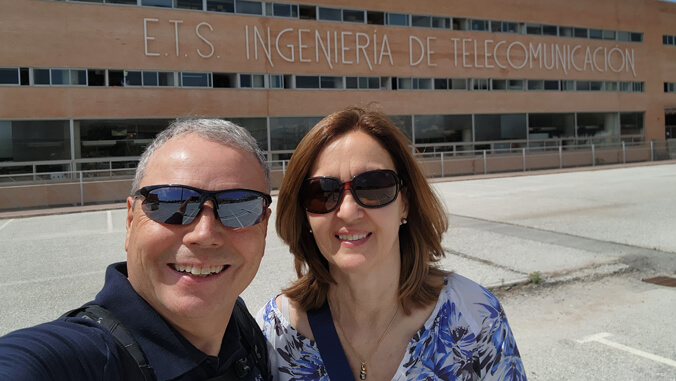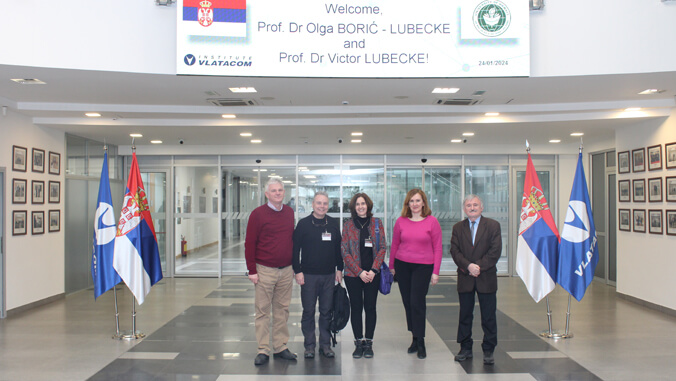
For nearly a year, University of Hawaiʻi professors Olga Borić-Lubecke and Victor M. Lubecke traded Oʻahu—a place they have called home for more than two decades—for Europe to pursue their shared passion for engineering research. The husband-and-wife team, both electrical and computer engineering professors at UH Mānoa, found themselves on an unexpected journey that stretched more than three months beyond their initial Fulbright scholarships.
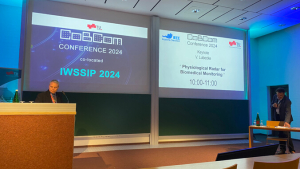
Aside from their programs in Spain (Borić-Lubecke) and Serbia (Lubecke), the couple received numerous speaking invitations from colleagues across Europe. As they hopped from country to country—including Bulgaria, Austria, Slovenia, Portugal and Morocco—giving talks and forging new collaborations, the couple was surprised to find their work preceded them.
“We found out that we’re kind of famous,” Borić-Lubecke said with a sly smile. “At most of these universities, people knew who we were and they would come to us and tell us, ‘Oh, we have been reading your papers.’”
While the extended absence from Hawaiʻi brought moments of homesickness, the Lubeckes found themselves swept up in the excitement of sharing their research and building international connections.
Improving health—analysis and environment
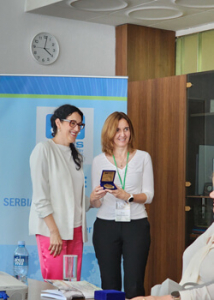
The Fulbright U.S. Scholar Program offers academics, artists and professionals in the U.S. grants to lecture, conduct research or participate in seminars abroad, fostering international collaboration and cultural exchange.
Lubecke’s program took him to the University of Niš in Serbia from August to December 2023. His project, “Robust Physiological Radar,” focused on improving techniques to analyze radio waves scattered by the human body to measure breathing, heart rate and other health indicators.
Borić-Lubecke’s scholarship, from January to May 2024, brought her to the Universidad de Málaga in Spain. Her project, “Wireless Physiological Sensing for Smart Infrastructure Applications,” explored using physiological measurements to adjust indoor environments for comfort, learning and healing.
Both professors hope to bring insights from their experiences back to UH Mānoa. Borić-Lubecke has worked on a vertically integrated project with the UH Office of Sustainability for several years in energy and sustainability, and hopes to bring some of her findings to the project.
“This is a concept that is emerging more on our campus,” Borić-Lubecke said. “I think so far, we have been more concerned about energy aspects. But I think that this concept of well-being and how we can adjust the environment to make our students more productive and learn more effectively has a lot of potential.”
Lessons learned
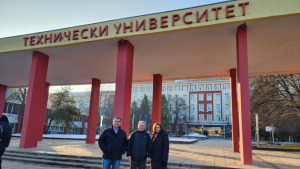
The husband-and-wife team coordinated their scholarships to spend the entire academic year together, switching locations midway through.
“We applied for scholarships in different countries and opposite semesters,” Lubecke explained. “It worked out nicely.”
Both professors emphasized the value of the Fulbright experience for fostering international understanding and collaboration.
“I would highly recommend this sort of experience,” Borić-Lubecke said. “It is really suitable for a wide range of students and scholars.”
The extended time abroad also provided an opportunity for reflection.
“We learned to better appreciate things that we took for granted in Hawaiʻi,” Lubecke said. “But also we saw some nice things and how things are done nicely in other places.”
—By Marc Arakaki
